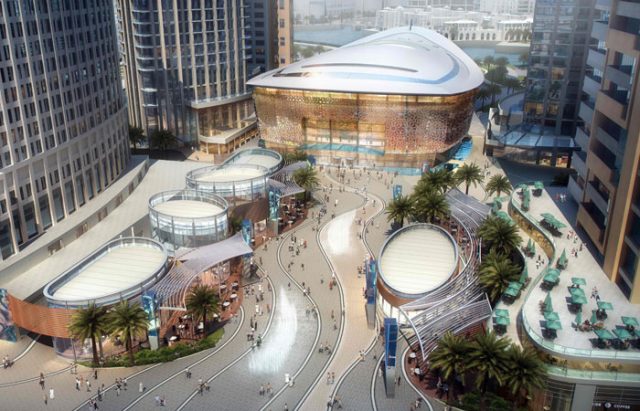
Dubai looks to boost cultural life with opera house
A BOAT-SHAPED hulk of steel and glass at the foot of the world’s tallest tower, Dubai’s new opera house is set to boost the cultural life of the Gulf’s business hub.
Workers are putting the final touches on the venue, a short walk from the 828-meter (2,700-foot) Burj Khalifa, as it prepares to host Spanish tenor Placido Domingo at an opening gala on Aug. 31.
While Dubai has a reputation for grand construction projects, it has not had a landmark venue for performing arts — until now.
“Look at everything else Dubai already has… now we’re going make it even better,” said Dubai Opera’s CEO Jasper Hope, former chief operating officer at London’s Royal Albert Hall.
“One of the areas that has been missing for many people is a venue in which to experience brilliant live music,” he told AFP.
Dubai Opera organizers hope to change that, with performances including Rossini’s “The Barber of Seville” and the Broadway musical “West Side Story”.
The venue will also host local shows, with popular Emirati singer Hussain Al Jassmi performing there in October.
In a nod to Dubai’s long history as a port city, the opera house is shaped like a dhow, a traditional wooden boat used for centuries in Gulf waters.
But the ultra-modern 2,000-seat venue can transform into three modes, operating as a theatre, concert hall and a flat-floored hall suitable for banquets and weddings.
Its developer, Dubai-based Emaar Properties which also built the Burj Khalifa, has not revealed the cost of the opera project. In the space of decades, Dubai has transformed itself into a center for trade, travel and tourism.
Spending trillions of dollars earned from oil exports, it put itself on the map with luxury resorts, glitzy skyscrapers and artificial islands shaped as palm trees and a world map.
But its cultural scene remained low profile in the business-oriented emirate.
Now, Dubai “has a vision to be one of the top cities in the world,” said the Emirati director of the privately run Centre for Musical Arts (CMA), Tala Badri.
To succeed it has to “present the same things you would get whether you went to London or New York… and that does include performing arts,” she said.
Opera remains very much a cultural import for Gulf Arabs — the only other opera house in the region is in the Omani capital Muscat.
But Dubai’s population is predominantly foreign, including a sizable Western community.
Hope said his vision is for the opera house to inspire local artists.
“There are only a handful of musical education, dance education, theatre education projects running right now. I sincerely hope, and we will actively encourage, many more to come out of what we’re doing,” he said.
Badri said she hopes Dubai Opera will help make the emirate a cultural centre.
“The opera house is a great idea, but if you want to fill it, you need to educate a population to understand it,” Badri said.
“At the moment it’s just a facility for hosting things, and it could be so much more.”



























